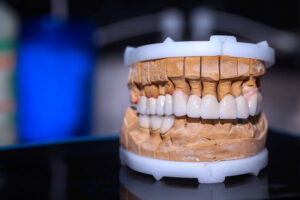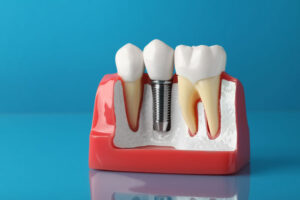 People in the United States eat more sugar than any other country in the world. (Fortunately, we also have some of the best dentists in the world.) You hear it all the time: “sugar rots your teeth.” But is it true? What exactly does sugar do to your teeth and why is it so bad? You might want to learn more about this substance that is added to nearly every edible item in the grocery store. Abilene dentists Drs. Leedy, Green, Chen, and Park tell us more below.
People in the United States eat more sugar than any other country in the world. (Fortunately, we also have some of the best dentists in the world.) You hear it all the time: “sugar rots your teeth.” But is it true? What exactly does sugar do to your teeth and why is it so bad? You might want to learn more about this substance that is added to nearly every edible item in the grocery store. Abilene dentists Drs. Leedy, Green, Chen, and Park tell us more below.
Sugar 101
All food causes some buildup on your teeth. After eating and drinking, little bits of food are left behind in your mouth. Out of all the food we eat, sugar does the worst damage to your teeth.
Even healthy foods like milk, bread, and produce contain some natural sugar, but these foods also contain necessary vitamins and nutrients. Eaten in healthy amounts, your body has no problem breaking down the natural sugars with the other food bits on your teeth.
The problems begin when you eat food that has more sugar than nutritional value. Without proper nutrition, your body may be unable to fight the bacteria and decay excessive sugar consumption causes in your mouth.
Sugar is sneaky: it’s in almost everything! Read your regular grocery labels carefully just to estimate your actual sugar consumption levels. This is not an all-inclusive list, but here are some examples of these common and misleading names for sugar that are added where you least expect it:
- High fructose corn syrup
- Sucrose
- Barley malt
- Dextrose
- Maltose
- Rice syrup
The American Heart Association recommends you have no more than 9.5 teaspoons of sugar per day. However, in the U.S. the average adult consumes 22 teaspoons and the average child consumes 32 teaspoons…every single day!
Plaque
Why is sugar so bad for your teeth? Because it causes plaque buildup and tooth decay.
Certain bacteria are normal and fine in your mouth. But sugar left on your teeth attracts bad bacteria that create plaque, which breaks down your teeth. Think of how the wind sweeps away bits of sand off a dune little by little, until eventually there is no dune left. That’s what plaque does to your teeth. It causes an acidic reaction that weakens enamel, your tooth’s outer layer.
Snacking all day means your teeth are exposed to food buildup, bacteria, and plaque over an extended period of time. Drinking sugary beverages is especially harmful because that liquid gets into all the grooves and hard-to-reach parts of your mouth. The average American consumes 53 gallons of soft drinks per year – do you see where this is going?
Decay
When plaque ruins your enamel, you get a hole in your tooth called a cavity. The hole allows more bacteria and plaque to move deeper into the inside of your tooth. This is known as tooth decay. Your enamel is the shiny white surface of your teeth and its purpose is to protect the inner layers of each tooth. Each individual tooth has a blood source and a nerve keeping that tooth alive. If decay reaches to the inner layers, your tooth may die and fall out. And all of that can happen much more quickly than you realize.
Next Steps
Tooth decay is the most common chronic disease among children, and many adults struggle with it as well. The good news is that tooth decay is preventable with healthy eating habits and proper oral hygiene. Here are some tips if you want to protect your teeth from the negative effects of sugar:
- Don’t snack all day
- Avoid sugar in any beverage
- Enjoy sweets in moderation
- Brush with fluoride toothpaste
- Try natural forms of licorice and cinnamon which taste sweet without any sugar
- Beware of sugar alternatives (those little yellow, blue, and pink packets) that can still have negative effects on your health
- Brush your teeth at least twice a day and floss at least once
Last but not least, contact the Abilene dentists of Leedy Dental to make an appointment to get a professional cleaning twice each year from our amazing hygienists!
The content of this blog is not intended to be a substitute for professional medical advice, diagnosis, or treatment. Always seek the advice of qualified health providers with questions you may have regarding medical conditions.
Sources
http://www.livescience.com/44081-does-sugar-cause-cavities-plaque.html




